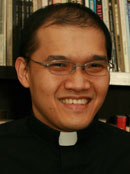As part of the introduction of the Authority, Community, Identity working group, the Contending Modernities blog will feature a series posts outlining the proposed research from scholars in the ACI Africa and ACI Indonesia subgroups.
In summer 2014, Nahdatul Ulama (NU), one of the largest Muslim organizations in Indonesia, joined the Catholic Church in saying no to abortion after the Indonesian government issued Government Regulation No. 61/2014, a new regulation on reproductive healthcare. The new regulation reaffirmed the prohibition of abortion in Indonesia, but added exceptions for cases of rape or serious danger to the mother’s life. After some Islamic clerics issued a statement that abortion is “morally acceptable” if it is performed within the first 40 days after conception, NU sided with the Catholic Church in calling for an absolute ban.
The abortion debate in Indonesia is a fitting illustration of the global trend toward liberalization of access to abortion across the world. In Indonesia, this phenomenon cannot be separated from the constitutional reform that took place more than a decade ago. The series of constitutional reforms that took place through the 1990s and early 2000s resulted in the adoption of a lengthy and impressive of Bill Rights in the Indonesian constitution, and can be seen as evidence that Indonesian has joined the “race to the top” on its upward trajectory of adopting universal rights. Moreover, in the decade and more since its inception, the Indonesian Constitutional Court has emerged as an important player in the creation of a new kind of Indonesian constitutionalism, issuing many decisions on the protection of civil and political rights.
This phenomenon immediately raises a question of how the Muslims and Christians respond to the new notion of constitutionalism in Indonesia: do they embrace or reject it? No comprehensive studies have been undertaken of the relationship between the Indonesian Constitutional Court and religious groups, primarily Muslims and Christians.
The focus of my research is a series of constitutional cases in Indonesia, including those litigated in the Court and those that never reached the Court. As such, the study will contribute to the discussion of Christian–Muslim relations within the context of Indonesia’s domestic constitutional regime.
In one instance, the case of the Religious Education Law, Islamist political parties proposed a bill demanding the state to enforce a sectarian policy on religious education in both public and private schools. Most Christian-affiliated groups opposed the bill with a little support from some Muslim-affiliated NGOs. The debate ended up with the victory of Muslim groups, but the Christians groups never challenge the Law to the Constitutional Court.
Indonesia has also witnessed a new phenomenon of the so-called “constitutional jihad.” Since 2012, Muhammadiyah, one of the largest Islamic organizations in Indonesia, has been in the forefront of constitutional litigation, viewed as part of the struggle for social justice in Indonesia. After its involvement in the Oil and Gas III case, Muhammadiyah cited judicial review as a “constitutional jihad,” part of their “great legal struggle.” With their constitutional jihad, Muhammadiyah has challenged much statutory legislation around governmental policies. Interestingly, however, none of these challenged statutes have involved religious issues.
To date, there have been no comprehensive studies on how Muslim and Christian groups perceive the judicial review process in the Indonesian Constitutional Court. This study aims to fill a significant gap in the field of law and religion in Indonesia by conducting empirical research and analysis on the role of both Muslim and Christian advocacy and participation in shaping and contesting Indonesian constitutional politics. This study will collect and analyze data from the cases brought to the Court and those cases that never reach the Court; and from interviews with both Muslim and Christian groups involved in constitutional litigation in the Court. No data of this kind has been systematically assembled to date in Indonesia. Drawing upon a combination of archival and field research, this project therefore deals with a socio-legal theory around how constitutionalism and judicial review have been understood by Muslim and Christian groups in Indonesia.

